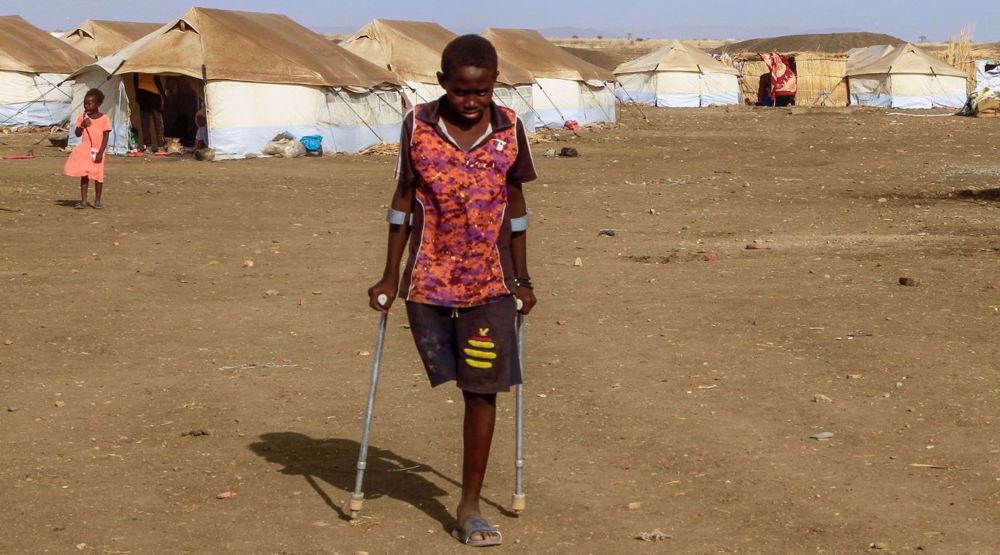Sudan leader made no promise to normalize ties with Israel: Cabinet
Sudan's cabinet says the country's leader General Abdel Fattah al-Burhan, who heads the ruling council, made no promise to Israel's prime minister of "normalizing ties" between the two sides during recent secret talks.
Sudan's transitional cabinet said Thursday the recent meeting with Benjamin Netanyahu was Burhan's "personal initiative" and that he had made no promises to the Israeli premier.
Government spokesman Faisal Mohamed Salih also told reporters early Thursday that the issue of relations with Israel was something the current transitional government was not mandated to decide.
"This government has a very limited mandate. The issue of relations with Israel is beyond its mandate," he said.
"The chief of the sovereign council told us ... he did not give any commitment and did not talk of normalizing relations," Salih said. "He did not give a promise of normalizing or having diplomatic relations," he added.
The remarks come amid anger at home against what is largely seen as a radical change in the African state’s longtime anti-occupation foreign policy.
Burhan sat down for talks with Netanyahu in Uganda in a meeting reportedly arranged by the United Arab Emirates.
It was only made public when the Israeli premier took to the Twitter to claim that an agreement had been reached with Sudan to “begin cooperation that will lead to the normalization of relations.”
Israel has no formal diplomatic relations with Sudan, where public and government support for the Palestinian cause runs strong. The Khartoum-Tel Aviv relationship has historically been hostile.
Burhan heads a joint civilian and military body tasked with overseeing the country's transition to civilian rule.
The transitional government headed by Prime Minister Abdalla Hamdok was formed months after the ouster of longtime presidemt Omar al-Bashir amid nationwide protests in April last year.
The cabinet says it was not informed of the meeting in advance.
On Tuesday, protesters gathered outside the government headquarters in Khartoum to denounce the Netanyahu-Burhan meeting and the idea of normalization of ties.
“The betrayal that was represented in the meeting with the head of the Zionist entity, is a dagger in the heart of the Sudanese people,” said Tarek Babakr, one of the demonstrators.
The meeting also infuriated main Palestinian factions in the Israeli-blockaded Gaza Strip and the occupied West Bank, namely Hamas, Islamic Jihad and the Palestine Liberation Organization (PLO).
Hazem Qassem, spokesman for the Hamas resistance movement, denounced the meeting, saying it is “encouraging the (Israeli) occupation to carry on with its crimes and aggression against the Palestinian people.”
Saeb Erekat, the PLO secretary general, condemned the meeting as a “stab in the back.”
On Thursday, veteran Sudanese politician Sadeq al-Mahdi spoke out against normalizing ties with Israel.
"We reject this meeting as it will impact our national interest negatively. We are against it strongly," Mahdi said, adding, "We close the door completely for normalizing of relations with Israel."
Sudan has long been part of a decades-old Arab boycott of Israel over its treatment of the Palestinians and its occupation of Arab lands.
In the wake of the Six-Day War of 1967 in which Israel occupied the Palestinian territories and seized the Golan Heights from Syria, Arab leaders held a historic meeting in the Sudanese capital Khartoum to announce what became known as the 'three nos' -- no peace, no recognition, no negotiations with Israel.
VIDEO | Al-Qassam rocket strike kills, wounds over dozen Israeli soldiers
OIC denounces Israeli genocide in Gaza, urges sanctions against regime
VIDEO | Gaza ceasefire talks
VIDEO | Press TV's news headlines
VIDEO | How Iran shook Israel
VIDEO | Hezbollah's Strikes
Malaysia's PM condemns West’s ‘sheer hypocrisy’ over Gaza genocide
NATO scrambled 240 fighter jets to shield Israel against Iran's strikes: Top Cmdr.











 This makes it easy to access the Press TV website
This makes it easy to access the Press TV website